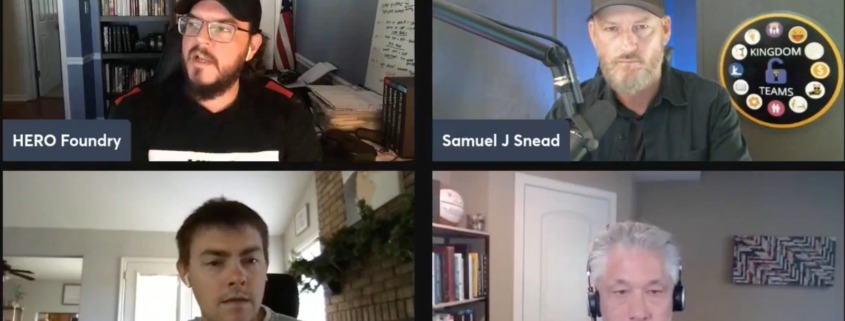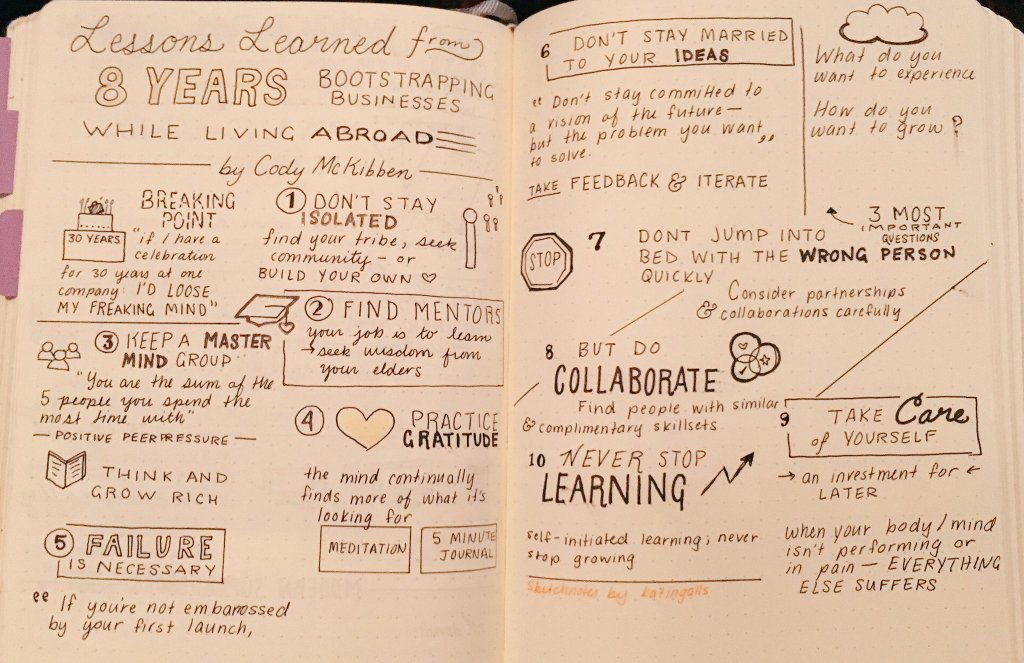A few weeks ago, my old blogging buddy Ron Davison sent me a copy of his new book The Fourth Economy: Inventing Western Civilization, which examines the pattern of progress from an agricultural economy to an industrial one, then from industrial to an information economy, and predicts what the next generation will see with the rise of an entrepreneurship economy. If you feel the same entrepreneurial rumble around you right now as I do, we’re only just seeing the tip of the iceberg.
Already in the first few pages it had me absolutely spellbound, so I wanted to share. Ron’s thesis revolves around how the evolution of society has always depended upon invention… but he points out how we tend to think of invention solely as a technological act… when in fact there is another, equally important form of invention that almost invisibly shapes society: social invention.
I’ll quote extensively from Ron’s first few chapters, as he’s much more eloquent and academic about this important claim than I could ever be (emphases are mine):
“Money is only money because we agree it is money. As soon as we all agree that Confederate currency no longer has any value, it no longer has any value. When we agree that information on magnetic strips affixed to plastic has value, it has value. Whether someone is a slave, employee or part-owner of an enterprise is not inherent in any physical reality or dependent on any brute facts, but is—instead—true only as an institutional fact [i.e., a social invention –Cody].
[…] “A technological invention results in a product that can be seen independent of any agreement about it. While its use might require some instruction, instruction that might be something akin to declaration or agreement, its existence does not. A steam engine translates heat into motion and even if it requires an operator to do this, its existence falls more into the category of brute fact than institutional fact. By contrast, a home loan is a [social invention]. Without a contract specifying terms and even who owes what to whom, the loan makes no sense. Further, the loan assumes a whole other set of [social inventions], from money to banks to a real estate market to determine the value of the home for which the loan exists.”
…Ron goes on to explain the immense importance of social invention, including all the institutions that you’ve become accustomed to in your lifetime, in shaping society — nation-states, churches, banks, corporations, money, democracy. At some point in history, each of these things was invented, agreed upon, and eventually accepted as the status quo. But these things haven’t always existed, they haven’t always been the norm, as we tend to forget.
“A set of inventions defines a culture or civilization.
“We recreate civilization in each child. We call it education. Look at the huge amount of time and attention we devote to ‘civilizing’ a baby to become a member of society. The gross effort it takes to recreate society in each child should be testament to the fact that a culture is not a ‘natural’ or spontaneous state; it is, instead a social invention that takes great effort—every time. Language and manners, what we question and what we accept, social roles—all of these end products represent the teaching of parents, teachers, and even the media and are essentially conventions that work to construct meaning, to create the modern life. Rather than see them as inventions, we often see social inventions as simply ‘the way things are.’ Should you want a reminder that social inventions are just made up, however, raise a child. Mothers know that the curious, rebellious, stubborn, and lazy child will challenge social inventions. My family lives close to the Mexican border and when my daughter was protesting her car seat, she would say, ‘Mexican kids don’t wear seat belts.’ She, like every child, knew that things could be different and questioned why they were not. And of course, travel, news reports, novels, and history all remind us that our social inventions are not universal or even stable. What makes you successfully fit into your neighborhood in Manhattan would make you stand out in Afghanistan. Or even Montana. What made you fashionable in 1972 makes you look silly in 2012.”
He implores the need for social progress, for us to become more conscious about social invention. And I love how he describes our opportunity to create a new social reality:
“Perhaps teachers and parents should add this to their list of admonitions and lessons: ‘Warning: contents of this society have been known to create feelings of anomie and alienation; provoke wars, homicides, and suicides; and pollute the habitat you need for survival. Most of what we tell you should be questioned and could be improved upon. This is, really, just the best we’ve been able to do up until now and it could be that improvement will actually overturn much of what we now accept and advocate. Learn about your culture and your place in it, but don’t cling too tightly to it. What we’re teaching you probably needs to change, and soon.'”
[…] “a hypnotist, in a matter of minutes, can program you to do things you don’t normally do and to believe what is not so. […] how much more powerfully can society program you during the course of your life, given that it has so much more time and so many more persuasive tools at its disposal than does a hypnotist?”
[…] “If social invention is to become more widespread [ie: and we are to harness our inherent abilities to pave our own destinies and craft our own world –Cody], the individual will have to become more aware of how his or her life is also an invention. Up until now, it is the few who have defined society and the many that have been defined by it. A few receive the divine revelation and many receive Mass. Think about a world in which the direction is increasingly reversed, a society in which the individual is less social invention than social inventor. Or, rather, imagine a world in which more people engage in acts of social invention. If social invention becomes to this century what technological invention was to the last, we’ll witness such a change. Or, rather, we’ll create such a change.
“If daily life is an invention, the question is, whose invention is it? It is hard to underestimate the importance of inertia in defining society. Yet entrepreneurs challenge this inertia and invent something new.”
[…] “an entrepreneur is a social inventor. Their work is to create a new social invention, an organization, an institution, a new market, or a new business. Social entrepreneurs might start a new non-governmental organization (NGO) or nonprofit or charter school. I’m going to include under my broad umbrella of entrepreneurs not just business entrepreneurs like Bill Gates and Henry Ford but political and religious entrepreneurs like Thomas Jefferson and Martin Luther.
“The next economy will popularize entrepreneurship in the same way that the Information Age popularized higher education and knowledge throughout the twentieth century. As entrepreneurship becomes more popular and diverse in its expression and application, social invention will become as normal as technological invention.”
My wish for the years ahead is to see more interesting people building interesting things — projects, businesses, organizations, art, nonprofits, social inventions…
I am excited to see this become the new norm — to see many more people wake up to the realization that they don’t have to be a wage slave or an employee, but can instead choose to be creators, artists, shapers of the world around them, entrepreneurs. If you find these ideas and trends as fascinating as I do, I highly recommend you pick up a copy of Ron’s book The Fourth Economy for a much more in-depth look at the entrepreneurial revolution he predicts will sweep across the world.
I only hope we can play a small role in this huge societal shift with what we’re doing here and at inside The HERO Project, by enabling many more ambitious trailblazers to use their inherent abilities to create and shape things around them to help move the world forward.
You are the pioneers of the Fourth Economy. Here’s to creating an improved, more connected, whole, healed, better society through entrepreneurship!





